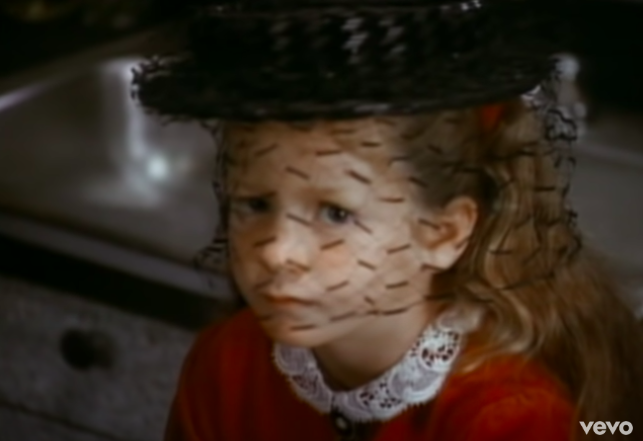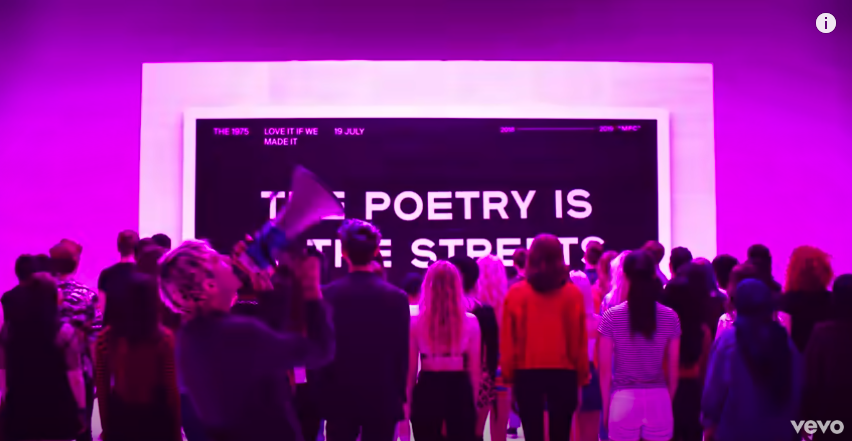Resolution: The Role of Modern Youth
While “We Didn’t Start the Fire” and “Love It If We Made It” focus on nostalgia and repercussions of the past, they also warn young Americans of their privilege of turning a blind eye to social injustices. In “Popular Music Helps Students Focus on Important Social Issues,” Moore discusses the social impact music videos and song lyrics have on younger generations. This creates a necessity for artists to display major events and people in American history in their music videos to connect controversial social issues to pop culture (Moore 2007, 22). Teaching social and historical issues through the arts, rather than the traditional textbook approach, allows students and the listening population as a whole to intimately connect social studies to their personal and political lives. Thus, perhaps unintentionally, “We Didn’t Start the Fire” and “Love It If We Made It” ignite social justice movements in modern youth.
In his songs, Joel uses music to both bring together and separate generations from each other (Duchan 2015, 42). While he anchors standard American political views of power, Joel also succeeds in separating the cultural beliefs of older generations from those of his own, demonstrating the importance of the American youth’s role in pop culture. Similarly, as a band of Millennials with a Generation Z fan-base, The 1975 captures the essence of what it means to be a teenager in the current political climate: anxious and frustrated. Joel and The 1975, however, recognize this frustration can ignite a cultural movement to ensure that underrepresented voices are not suffocated by political power.


According to Mazullo, fans, rather than Joel and The 1975, create this necessity for political action using “We Didn’t Start the Fire” and “Love It If We Made It” (2000, 717). While critics argue that the songs and videos represent “‘a way to make history even more boring’” by reciting news events that modern youth are all too familiar with, Joel and The 1975’s method is significant in analyzing social and cultural events with a political twist (Longrie 1997, 147). A study by Longrie examined that when students listened to “We Didn’t Start the Fire” while reading the lyrics, many did not recognize every term. Thus, the cultural significance of “We Didn’t Start the Fire” and “Love It If We Made It” serves as a reminder that these events will never be unwritten from history, despite future generations’ neglect of them.
In this sense, “We Didn’t Start the Fire” and “Love It If We Made It” are scream-along anthems that challenge the continued American political standard of complacency while simultaneously igniting a cultural movement in modern youth to be the ‘savior’ of their generations. By placing the blame for cultural issues on previous generations, Joel and The 1975 ensure that younger generations are not only aware of political uproar, but guarantee it is never repeated.
In the end, future generations will determine if we’ve “made it.”
